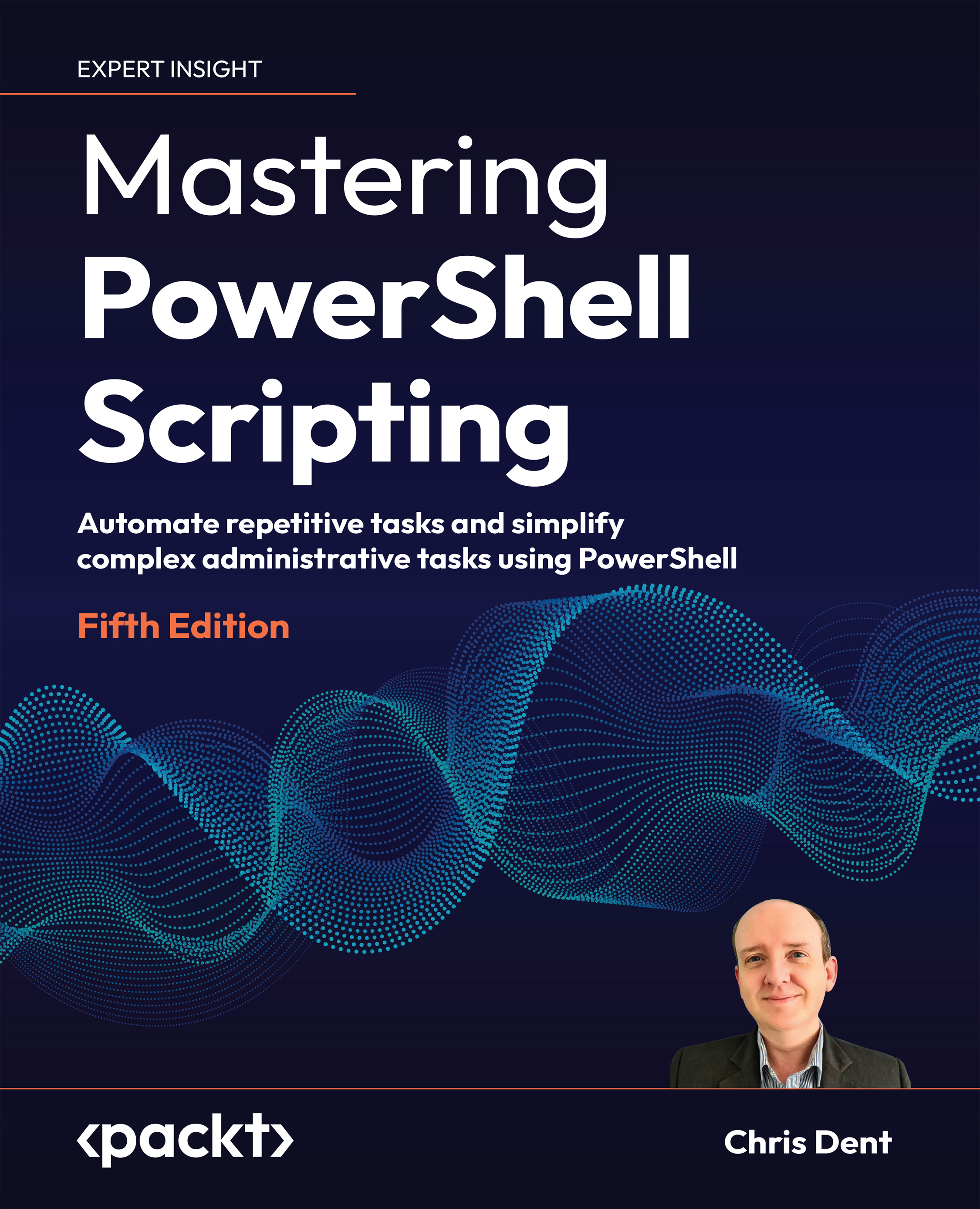Summary
This chapter contained several foundational topics for PowerShell, starting with picking an editor, using help content, and command discovery.
The ability to use the help system and discover commands is vital, regardless of skill level. The availability of help content in the shell allows new commands to be quickly incorporated and used.
Naming plays an important role in PowerShell. Strict use of a reasonably small set of verbs greatly enhances discovery and reasonable assumptions can be made about a command before reaching for help content. PowerShell tends to use longer and more descriptive command names compared with other scripting languages.
Once a command has been found, it is important to understand how to use the help content and the parameters a command offers to use it effectively.
Providers allow access to data in a similar manner to using a file system. Providers play an important role in PowerShell and are explored again later in this book when exploring the file system and registry. Providers are explored in greater detail in Chapter 10, Files, Folders, and the Registry.
Splatting was introduced and will be used repeatedly throughout this book. In the context of this book, it is primarily used to reduce line length. Splatting is an incredibly useful technique when scripting. The ability to conditionally use parameters without repeating code reduces complexity and the chance of introducing bugs.
The parser was introduced to explain command syntax, when values must be quoted, and when parentheses are required. The parser is complex and the examples in about_parsing should be reviewed.
Finally, PowerShell 6 introduced the idea of experimental features. This continues into PowerShell 7. Features can be toggled on (or off again) before they become mainstream.
The next chapter moves on to exploring modules and snap-ins, allowing PowerShell users to go beyond the base set of commands and include content published by others.
Learn more on Discord
Read this book alongside other users, PowerShell experts, and the author himself. Ask questions, provide solutions to other readers, chat with the author via Ask Me Anything sessions, and much more.
Scan the QR code or visit the link to join the community.


































































